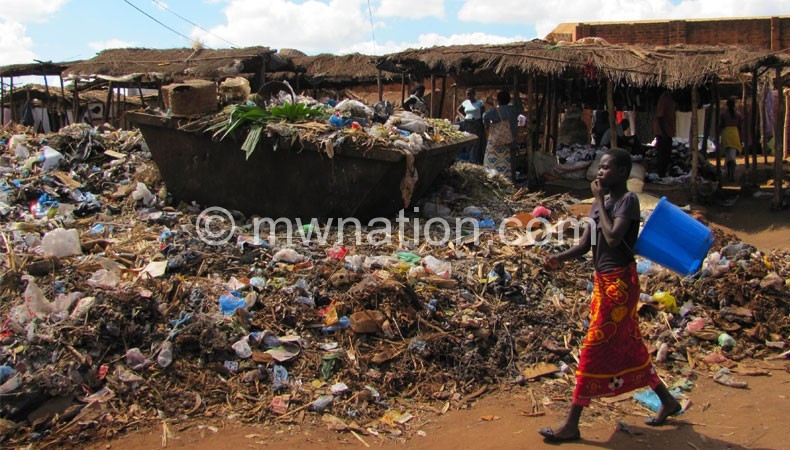City rates debts swell to billions

As Treasury is grappling to fund various government departments amid the zero-aid budget, government is losing out on revenue from uncollected city rates which run in billions of kwacha.
Uncollected refuse that continue to pile up across the country’s major cities of Lilongwe, Blantyre, Mzuzu and Zomba and poor sanitation in the cities have been partly attributed to huge unpaid rates by tenants which would have funded such cleaning exercises.
However, one of the city councils’ chief executive officers (CEOs) has conceded that while the various councils are trying their best to collect the rates and reduce the debts, economic hardships currently hitting the country means city officials are trying to “milk very thin cows”.
In Lilongwe, private and government tenants owe Lilongwe City Council over K8 billion with government departments owing the council K400 million whereas statutory corporations owe the council K300 million.
Zomba City Council is owed K800 million with government being the major culprit.
Blantyre and Mzuzu city councils are also owed huge sums with that of Mzuzu City standing at K160 million.
The development has choked services delivery to almost “non-existence” with the city councils collecting just enough to pay their own staff, Lilongwe CEO Richard Hara further conceded in an interview on Tuesday.
“We are yet to write government on the bill, but recently the Chief Secretary through the National Local Finance Committee wrote us to request a bill, so we are hopeful that they will pay us soon.
“They pay us on quarterly basis, but they have not being paying us for some time. For some of the tenants, some of the bills are over two years old and we will soon publish a notice in the newspapers as mandated by law before taking action such as seizure of property,” said Hara.
He also attributed failure to pay the rates by some of the private tenants to recent changes in payment system whereby the city council asks the tenants to pay through commercial banks as one way of fighting corruption.
“Another factor which contributed to the matter is that a number of institutions were questioning our mandate as we had no councillors. So, perhaps the situation will improve now. Unfortunately, delivering of services was not waiting for councils, but we could hardly generate enough revenue to go beyond just paying our staff,” added Hara.
Blantyre City Council CEO Ted Nandolo could not be reached for comment, but the council’s director of finance Michael Kasamba pledged to come back with figures of unpaid city rates, but had not done so as we went to press.
Zomba City Council CEO Ali Phiri while also confirming that the city is owed K800 million in city rates, added that the city councils were beginning to feel sorry for most traders due to prevailing hard economic times.
“Both government and parastatals owe us huge amounts of money. Actually, the biggest culprit is government. Of course, the private businesses also owe us huge amounts of money, but looking at the economy, we feel we are at the same time trying to squeeze a very thin cow,” said Phiri.
Mzuzu City Council CEO Thomas Chirwa confirmed the arrears of K160 million from various tenants.
“I don’t have the file at the moment, but I can also confirm the figure and give you the breakdown later,” said Chirwa
Section 85 of the Local Government Act empowers the local council to collect rates from government departments, statutory corporations, businesses and private individuals.
Minister of Finance Goodall Gondwe, who was forced to reduce his budget from planned K742.8 billion to K737 billion, also cut into several local government programmes estimated allocations, including the National Local Government Finance Committee whose vote was reduced from K37.5 billion to K33.3 billion.
The country’s cities face several challenges, including refuse collection, unhygienic market places, non-functioning street lights and poor road infrastructure.





